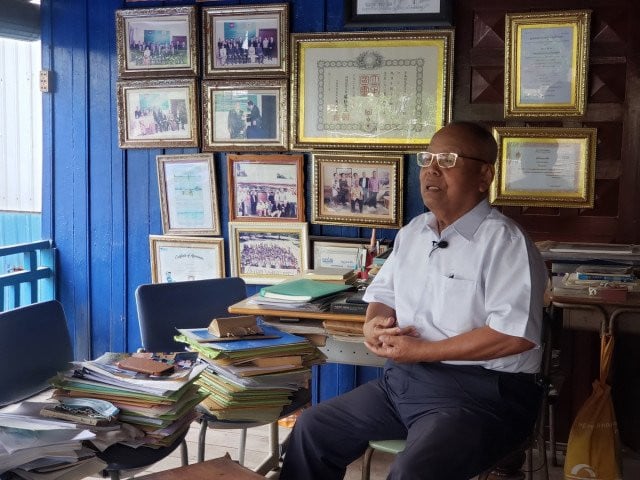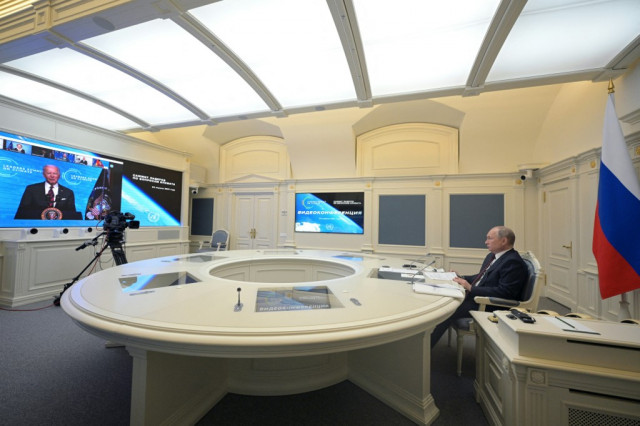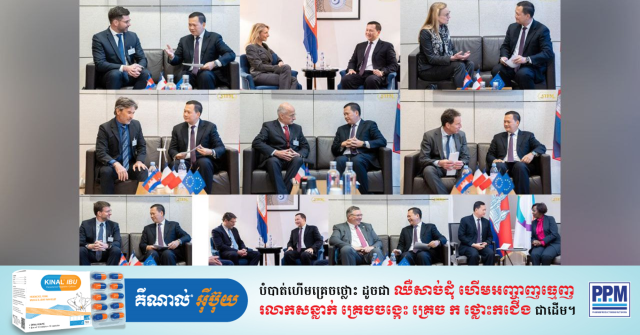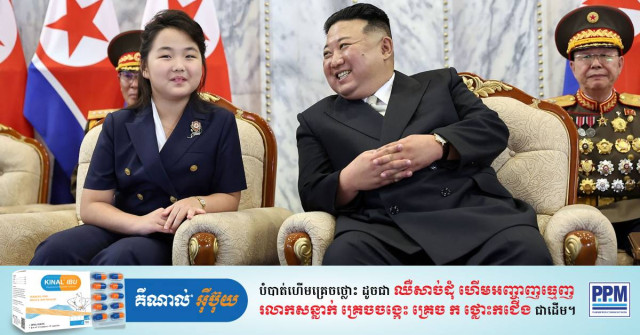Kong Vorn, 85, Dedicates Life to Creating Schools

- By Ou Sokmean
- and Sam Sopich
- April 20, 2022 10:27 AM
Poor children’s futures transformed by education
PHNOM PENH – For 30 years, Kong Vorn has campaigned and raised money from philanthropists, especially from Japan, to build schools for thousands of Cambodian children in Prey Veng province.
The central aim of the 85-year-old's life has been to use education to lift people out of ignorance and poverty and become more useful to society.
Older people often worry about living in retirement but Vorn, a former refugee from the civil war who lived in Japan during the 1980s, is concerned instead about the future of children.
He founded the Cambodia Education Assistant Fund (CEAF) to raise funds and in 1993 he established the Khmer Scholarship Fund for Cambodian Children after living and working in Japan for more than a decade.
His first achievement was Banteay Chakrei Secondary School, which has two buildings and nine rooms in Preah Sdach district of Prey Veng. Vorn spent three months asking for money from philanthropists and Japanese friends to raise more than $30,000 to build the school.
Vorn, the son of a farmer, said he has built seven schools with a total of more than 40 classrooms from secondary to high schools in Preah Sdach district for poor children in Prey Veng and for children in other provinces such as Mondulkiri, Kampong Cham and Svay Rieng.
“In the 1960s, there were very few English speakers in each village,” Kong said.
“But I knew a little about the language, which gave me the chance to get a good job and turned me from a rubber planter, a cement bag carrier, a sandbag operator and a cyclo driver to a journalist in a foreign institution and to become the president of an organization.”
His suffering until the end of the civil war, especially during the Khmer Rouge regime, was another major reason Vorn decided to work for 29 years in the field of education for the future of Cambodian youth.
Cambodia has been engulfed in a series of civil wars, which have historically been due to a lack of education. The worst events from 1975 to 1979 encouraged Vorn to help Khmer children gain qualifications and become human resources for the nation.
“I want to teach our Cambodian children at a high level so that they can help themselves and our nation,” Kong Vorn said in his wooden house in Phsar Doeum Thkov, Khan Chamkarmon, Phnom Penh.
“No society can prosper without the presence of the education sector. Japan is a country without natural resources but its economy and society have grown to become a world power because of its strong education system," he said.
In addition to the curriculum of the Ministry of Education, the Khmer-Japanese Friendship School, which he created in 1999, has provided excellent education to students in English and Japanese as well as the use of computers. The school provides extra tutoring for students preparing for the ninth grade and high school diploma exams, as well as providing students with the opportunity to study in Japan.
In addition to excellent education, poor students at this school get a monthly stipend and free on-campus accommodation.
The school has educated 6,518 children from one generation to the next, with more than 1,700 students studying now.
Currently, there are 23 second-generation students at the Khmer-Japanese Friendship School from the 7th grade onwards, while 17 second-generation students have graduated from the Baccalaureate exam.
Rin Sorya, a student of the Khmer-Japanese Friendship High School in 2009, said after passing the Bacc exam, she received a bachelor's degree in agricultural science at the Royal University of Agriculture through the Khmer Scholarship Foundation. After graduating, she got a scholarship to pursue a master's and doctoral degree in plant medicine in Japan.
"Without the Khmer-Japanese Friendship School, I might not have been able to finish high school or go to university because my family was poor,” Sorya said.
“It can be said that education in other schools is still limited, which makes us not capable enough to pass the exam or get a scholarship to study at the university.
“I believe that as long as this school continues to operate, the next generation living in the district will have more opportunities to continue their studies and have a better life that can help them and their families by easing the burdens of society,” she said.
Vorn's sacrifice was highly valued by the Japanese. At the end of December 2014, he received an award from Yuji Kumamaru, former Japanese Ambassador to Cambodia for his work connecting Khmer-Japanese friendship.
“When I see students graduating from the school with clear skills and receive praise from other schools, it motivates me to continue to help more Cambodian children.” Kong said.
"Sometimes I feel sick or dizzy, but my mind is still racing to share knowledge with 30 people because I am raising money to help my nation. Even after death, I am satisfied,”















